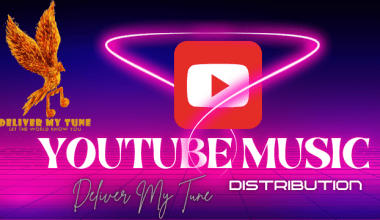Music Distribution Disputes on Apple Music can be a significant challenge for artists and labels. Whether it’s a misattribution, incorrect metadata, or royalty disputes, these issues can impact your revenue and reputation. This guide will help you understand common disputes, how to address them, and prevent future problems.
Understanding Music Distribution Disputes on Apple Music
Before diving into the specifics of handling disputes, it’s essential to understand what constitutes a music distribution dispute on Apple Music. Common issues include:
- Incorrect metadata (song titles, artist names, etc.)
- Misattribution of tracks
- Royalty disputes
- Content removal or takedowns
- Duplicate releases
Common Causes of Music Distribution Disputes on Apple Music
- Metadata Errors:
- Incorrect or incomplete information about the track or album.
- Mismatches between the metadata submitted and what appears on Apple Music.
- Misattribution:
- Tracks credited to the wrong artist.
- Albums appearing under incorrect artist profiles.
- Royalty Disputes:
- Discrepancies in royalty payments.
- Unclear or missing payment details.
- Content Removal or Takedowns:
- Tracks or albums removed without notice.
- Content flagged for copyright issues.
- Duplicate Releases:
- Multiple versions of the same track or album.
- Confusion over which release is the official one.
Steps to Handle Music Distribution Disputes on Apple Music
1. Identifying the Issue
The first step in resolving a music distribution dispute on Apple Music is to identify the specific issue. This involves:
- Reviewing your music catalog on Apple Music.
- Comparing the metadata with your original submissions.
- Checking your royalty statements for discrepancies.
2. Contacting Apple Music Support
Once you’ve identified the issue, the next step is to contact Apple Music Support. Here’s how to do it:
- Log in to your Apple Music for Artists account.
- Navigate to the “Support” section.
- Submit a detailed report outlining the dispute. Include relevant details such as ISRC codes, track titles, and screenshots if necessary.
3. Contacting Your Distributor
If you’re using a music distributor, contact them directly. Provide them with the same detailed information and ask them to liaise with Apple Music on your behalf. Distributors often have direct contacts within Apple Music, which can expedite the resolution process.
4. Documenting Everything
Throughout the process, keep a detailed record of all communications and actions taken. This documentation can be invaluable if the issue escalates or if you need to refer back to previous interactions. Make sure to include:
- Emails and messages exchanged with Apple Music and your distributor.
- Dates and times of communications.
- Any reference numbers or case IDs provided by Apple Music Support.
Detailed Solutions for Common Music Distribution Disputes on Apple Music
Metadata Errors
Solution:
- Review Submissions: Double-check all metadata before submission. Use professional music distribution services that offer metadata management to reduce errors.
- Update Metadata: If an error is found, contact Apple Music Support and provide the correct metadata details. Ensure your distributor is informed to avoid future discrepancies.
Preventive Measure:
- Metadata Templates: Use standardized templates for metadata entry to ensure consistency.
- Regular Audits: Periodically audit your catalog to identify and correct any metadata issues.
Misattribution
Solution:
- Report Misattribution: Contact Apple Music Support with detailed information about the misattributed tracks. Include screenshots and links to the incorrect and correct artist profiles.
- Distributor Assistance: Inform your distributor and request their help in resolving the issue.
Preventive Measure:
- Artist Verification: Ensure your artist profile is verified on Apple Music to reduce the risk of misattribution.
- Consistent Branding: Use consistent artist names and branding across all platforms.
Royalty Disputes
Solution:
- Review Statements: Compare your royalty statements with your sales and streaming data. Note any discrepancies.
- Submit a Dispute: Contact Apple Music Support or your distributor with detailed information about the discrepancy. Provide supporting documents, such as sales reports and previous royalty statements.
Preventive Measure:
- Clear Agreements: Ensure clear and documented agreements with your distributor regarding royalty splits and payment schedules.
- Regular Monitoring: Regularly monitor your sales and streaming data to spot discrepancies early.
Content Removal or Takedowns
Solution:
- Identify the Cause: Contact Apple Music Support to understand why your content was removed.
- Resolve Issues: If the removal was due to copyright claims, provide proof of ownership or permission. For other issues, follow Apple Music’s guidelines to rectify the problem.
Preventive Measure:
- Copyright Clearance: Ensure all your content is properly cleared for copyright. Obtain necessary permissions for samples and covers.
- Follow Guidelines: Adhere to Apple Music’s content guidelines to avoid removals.
Duplicate Releases
Solution:
- Identify Duplicates: Check your catalog for duplicate releases.
- Remove Duplicates: Contact Apple Music Support or your distributor to remove the duplicates.
Preventive Measure:
- Single Distributor: Use a single, reliable distributor for all your music releases to avoid duplication.
- Release Planning: Plan your releases carefully and coordinate with your distributor to prevent multiple submissions.
Preventing Music Distribution Disputes on Apple Music
1. Double-Check Metadata
Always double-check your metadata before submitting it to your distributor. Ensure that all details are correct and complete.
2. Monitor Your Releases
Regularly monitor your releases on Apple Music. This will help you spot any issues early and address them before they become major problems.
3. Clear Communication with Distributors
Maintain clear and consistent communication with your distributor. Ensure they understand your expectations and requirements for each release.
4. Keep Accurate Records
Keep detailed records of all submissions, correspondence, and transactions related to your music distribution. This documentation can be invaluable if a dispute arises.
Tips for Artists and Labels
1. Stay Informed
Stay informed about Apple Music’s policies and procedures regarding music distribution. This knowledge will help you navigate disputes more effectively.
2. Use Professional Services
Consider using professional services for music distribution and metadata management. These services can help minimize errors and ensure your releases are handled correctly.
3. Leverage Technology
Leverage technology to automate and streamline your music distribution processes. This can reduce the risk of human error and ensure consistency across your releases.
Additional Resources for Handling Music Distribution Disputes on Apple Music
1. Apple Music for Artists Support
- Website: Apple Music for Artists Support
- Features: Offers detailed guides and support for managing your music on Apple Music.
2. Professional Music Distribution Services
Consider using professional music distribution services that provide additional support for handling disputes. Some reputable services include:
- CD Baby
- Deliver My Tune
- DistroKid
- Ditto Music
These services often have dedicated support teams to help resolve distribution issues quickly.
3. Music Industry Associations
Joining music industry associations can provide additional support and resources for handling disputes. Some associations to consider:
- The Recording Academy (GRAMMYs)
- American Association of Independent Music (A2IM)
- International Federation of the Phonographic Industry (IFPI)
Best Practices for Preventing Music Distribution Disputes on Apple Music
1. Quality Control
Implement strict quality control measures before submitting your music to Apple Music:
- Audio Quality: Ensure your tracks are professionally mixed and mastered.
- Metadata Accuracy: Double-check all metadata for accuracy and completeness.
- Artwork Standards: Follow Apple Music’s guidelines for album artwork.
2. Regular Monitoring
Regularly monitor your releases on Apple Music to catch and address any issues early:
- Track Listings: Check that all track listings are correct and consistent.
- Profile Information: Ensure your artist profile is up-to-date.
- Royalty Statements: Review your royalty statements regularly for any discrepancies.
3. Clear Communication Channels
Maintain clear and open communication channels with your distributor and Apple Music:
- Distributor Relationship: Build a strong relationship with your distributor for better support.
- Direct Contacts: If possible, establish direct contacts within Apple Music for quicker resolutions.
4. Legal Preparedness
Ensure you have all necessary legal documentation for your music:
- Copyright Clearance: Obtain clearances for all copyrighted material used in your tracks.
- Licensing Agreements: Keep copies of all licensing agreements and contracts.
FAQs
What should I do if my track is misattributed on Apple Music?
If your track is misattributed, contact Apple Music Support through your Apple Music for Artists account. Provide detailed information about the error and request a correction.
How can I prevent metadata errors in my music submissions?
Double-check all metadata before submission and use professional music distribution services that offer metadata management to reduce errors.
What steps should I take if my music is removed from Apple Music?
Contact Apple Music Support immediately to understand the reason for the removal. If the issue is related to copyright, ensure that you have all necessary permissions and documentation.
How do I resolve royalty disputes with Apple Music?
Review your royalty statements and contact Apple Music Support or your distributor for clarification. Provide detailed information about the discrepancies and request a resolution.
Can using multiple distributors cause duplicate releases on Apple Music?
Yes, using multiple distributors can lead to duplicate releases. To prevent this, use a single, reliable distributor for all your music releases.
Conclusion
Music Distribution Disputes on Apple Music can be frustrating, but they are manageable with the right approach. By understanding common issues, following the steps outlined above, and implementing preventative measures, you can minimize the impact of disputes on your music career. Stay proactive, maintain clear communication with your distributor, and regularly monitor your releases to ensure everything is in order.
By following this guide, you’ll be better equipped to handle any music distribution disputes on Apple Music, ensuring that your music reaches your audience as intended and that you receive the royalties you deserve.
Related Article:
- Music Distribution Services
- How to Get Verified on Apple Music
- How Apple Music Pays Songwriters and Composers
- Promote your music on apple music
For additional resources on music marketing and distribution, visit Deliver My Tune






